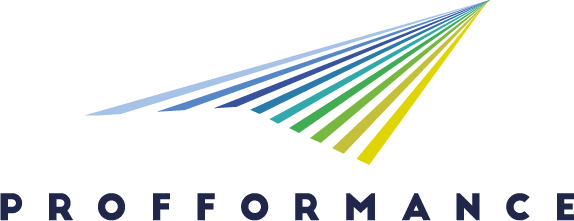DIGITS
Digital Interactive Gamified Teaching with Social Media and GeoGebra
- 01 - Education
- 07 – Engineering, manufacturing and construction
2. Innovative teaching and learning
- Student partnerships/engagement in the teaching and learning practice
- Differentiated instruction - promoting diversity of materials and learning styles
- Online and offline cooperative and collaborative work – developing engaging dynamics in the learning process
- Innovative physical classroom activities
- Simulation techniques: games, play and role-play – simulation-based learning techniques
The DIGITS methodology (Digital Interactive Gamified Teaching with Social Media and GeoGebra) combines digital tools with traditional teaching approaches in the course "Fundamentals of Electrical Engineering." Its goal is to enhance student engagement, foster interactive learning, and connect theoretical knowledge with practical applications. Students access GeoGebra simulations via QR codes, allowing them to adjust parameters and visualize concepts, which promotes independent research and deeper understanding. Traditional methods are integrated, with students taking notes during lectures and collaborating with the instructor through guided exercises. This blend ensures a balance between independent and collaborative learning. Lecture notes are created using a graphic tablet and shared instantly via LMS, giving students flexible access to materials. Quizizz, a gamified assessment tool, evaluates learning outcomes, engaging students through quizzes on their mobile devices while helping them develop digital skills. Lectures are also summarized and uploaded to YouTube, further enhancing accessibility and flexibility. The methodology's innovation lies in integrating modern technologies with interactive teaching methods to improve engagement and learning effectiveness. It promotes knowledge sharing, with selected lessons, such as the Maximum Power Transfer Theorem, featured on LinkedIn to encourage collaboration among educators. "Fundamentals of Electrical Engineering" is a 15-week course where these tools and methods are applied consistently throughout the semester. Outcomes include improved understanding of theoretical concepts, enhanced digital skills, and increased accessibility to educational materials. The DIGITS methodology is adaptable to other subjects, making it a versatile tool for advancing education.
Methodology
Tools, equipment, technology used
Outcomes and outputs, main results
Lessons learnt
Adaptability and sustainability of the best practice (for other institutions)
Promotion of best practice
Scope and impact
- Course/department level
- Faculty level
- Institutional level
- Cross-institutional level
- National level
- EU/EHEA/International level
6.1 Digitalization
- Outstanding, innovative, excellent practices of online / blended / hybrid learning
- Innovative, novel methodology in using digital tools/devices in teaching
- Innovative use of digital administration tools
- Digital skills development and assessment both general and profession-related, embedded in course design, in teaching and assessment
- Novel digital solutions (tools, frameworks, devices, tasks to enhance efficiency and motivation)
Reasoning: 1. GeoGebra simulations enabled interactive learning of complex concepts. QR codes and the LMS platform provided students with easy access to materials and recorded lectures, making content accessible at any time. The use of a graphic tablet allowed for clear explanations and real-time access to diagrams and calculations. 2. Interactive simulations, quizzes on the Quizizz platform, and dynamic teaching with the graphic tablet encouraged active participation, questioning, and a deeper understanding of the material, fostering continuous interaction. 3. The use of tools like GeoGebra, LMS, and Quizizz helped students develop digital skills, including responsible use of technology, while QR codes provided easy and safe access to additional resources. 4. The Quizizz platform provided instant feedback, allowing for self-assessment, while the LMS enabled personalized feedback and real-time progress tracking.
6.2 Internationalization
- Courses implemented in international cooperation (projects, co-teaching, virtual/blended mobility, etc.)
Reasoning: The DIGITS methodology has an international dimension through its presentation at the MIPRO 2024 conference, where it was shared with a global audience of researchers and educators. The approach leverages digital tools like GeoGebra, QR codes, and online learning platforms, which are accessible internationally. This facilitates collaboration, knowledge exchange, and the potential for adopting similar practices in diverse educational contexts worldwide.
6.3 Inclusion and diversity, universal design
- Universally designed teaching material - adjustable for special needs
- Innovative teaching methodology for inclusion and meet diverse student needs
- Alternative, flexible assessment methods for students with special needs
Reasoning: The DIGITS methodology uses innovative teaching and universally designed materials to meet diverse student needs. Tools like GeoGebra and LMS platforms allow for personalized learning, while interactive simulations and QR codes facilitate easy access to learning and support students with special needs. This methodology ensures inclusivity, enabling all students to learn at their own pace.
6.4 Sustainability
- Sustainability goals are addressed in the course(s)
- Teaching material contains profession related sustainability aspects
- Environmental attitude, skill development and assessment either general or profession-related
- Sustainability aspects are considered in all phases of the learning practice - "hidden curriculum"
Reasoning: DIGITS methodology promotes sustainability by reducing the need for physical materials through the use of online quizzes and assessments. By relying on digital platforms for student evaluation, paper usage is minimized, contributing to more sustainable educational practices. Additionally, the integration of digital tools supports the development of digital competencies, aligning with global sustainability goals and fostering resource-efficient learning.
3.3 Public contact datas
| Name | Email address | Website |
|---|---|---|
| Vatroslav Zuppa Bakša | vzuppabak@tvz.hr | http://www.youtube.com/@theelectricaltheorychannel |

